We want to know who was responsible for DNA bungle, says Palaszczuk
Declaring she was not going “back over old history” in the DNA samples controversy, Annastacia Palaszczuk has dodged questions over her government’s initial reluctance to hold an inquiry.
QLD News
Don't miss out on the headlines from QLD News. Followed categories will be added to My News.
The state’s legal fraternity is bracing for an avalanche of criminal appeals following disturbing revelations that thousands of DNA samples involved in suspected serious crimes were never tested.
Queensland Health stood down two senior employees within hours of the findings being released while various heads of departments converged for an emergency meeting on Wednesday evening as the blame game for the bungle began.
Interim findings this week from an inquiry into Queensland Health’s Forensic and Scientific Services revealed the state’s high threshold for testing DNA – double that of NSW – had meant thousands of major criminal investigations may have been compromised.
Premier Annastacia Palaszczuk described the findings as “one of the most concerning reports our state has seen” as she shifted focus to the enormous task of rectifying the forensic bungle.
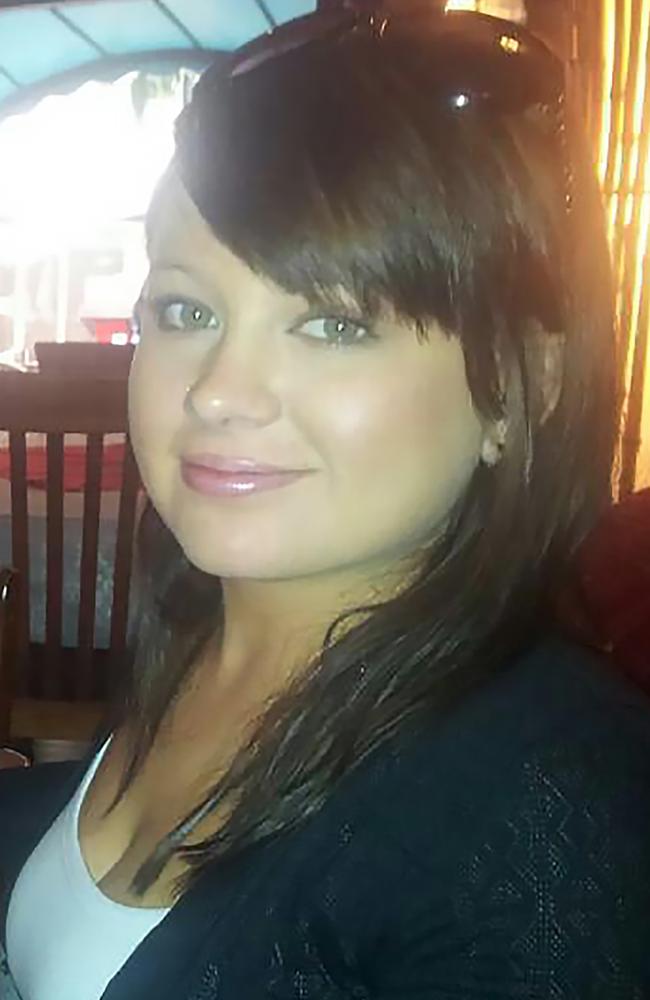
“We want to get to the bottom of this, we want to know who was responsible, we want justice for victims – that is paramount here,” she told reporters.
Defence lawyer Bill Potts warned the failure meant many victims of crime would never see justice delivered while the findings could damage confidence in the state’s justice system.
As part of an inquiry into the testing system, retired Court of Appeal president Walter Sofronoff KC revealed the state-run lab misled courts by wrongly reporting that no DNA had been detected or that DNA was insufficient for processing.
Mr Potts, the former Queensland Law Society president, said hundreds of criminal cases involving the most serious crimes including rape and murder had been thrown into doubt by the revelations.
“It applies to people in custody where the scientific experts have advised the court that there is no DNA present and where a court has been misled – that is going to give rise to suggestions and appeal points on the basis that the court can’t be satisfied beyond reasonable doubt,” he said.
“Another category is there are cases where investigators have not proceeded to charge people because of a lack of DNA, whereas it turns out there certainly was but it was either not collected or tested properly and the end effect of that there may be many investigations reopened now.”
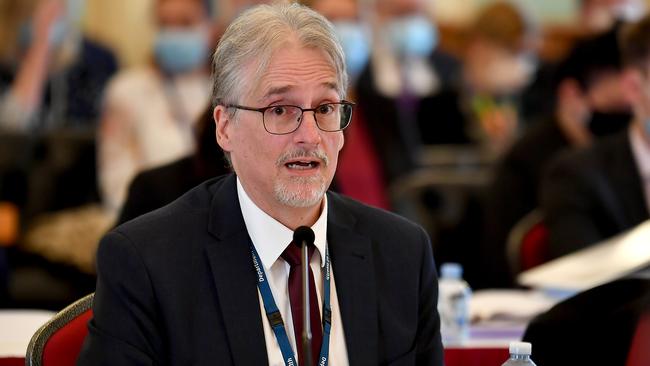
The two staff members, who have not been identified, were stood down by acting director-general of health Shaun Drummond ahead of a meeting hosted by the department on Wednesday evening that included the Police Commissioner and the Department of Justice boss.
The state government had faced pressure over several months to call a wide-ranging Commission of Inquiry into the troubled state-run DNA lab.
After a number of media reports alleging flawed testing processes in the lab dating back to late last year, Health Minister Yvette D’Ath announced an internal review would be conducted in March.
But when the terms of reference were released more than a month later, the government faced criticism for the review “falling well short”.
By the time Queensland Police confirmed they were reviewing hundreds of rape cases in early June, the Premier bowed to pressure and called a Commission of Inquiry shortly after.
On Wednesday, Ms Palaszczuk cited the need to respect the process of the ongoing hearings to dodge questions from reporters homing in on the government’s initial reluctance to pull the trigger on the inquiry.
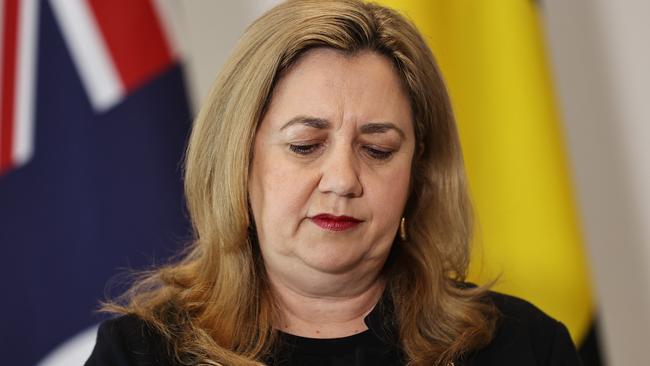
“I’m not going to go back over old history,” she said. “There is a commission of inquiry afoot here and you need to allow the commissioner to do his work.
“There will be witnesses that will be coming forward; they need to be given the opportunity to give evidence to him.
“He needs the opportunity to be able to listen to all that evidence and make his findings.”
Ms D’Ath said the government would now undertake a full audit of all DNA samples relating to major crime between 2018 and June this year which led to witness statements declaring “DNA insufficient for further processing” or “No DNA detected”.
Where DNA is found in results that initially weren’t progressed, results will be handed over to police.
“The government has already reverted to FSS’s previous practice of testing all samples, including those with low levels of DNA, as it did prior to February 2018,” Ms D’Ath said.
“A taskforce has also been established to implement the recommendations and to support work coming out of the ongoing Commission of Inquiry.
“Where cases are re-examined, police will contact interested parties including victims of crime and their families.”
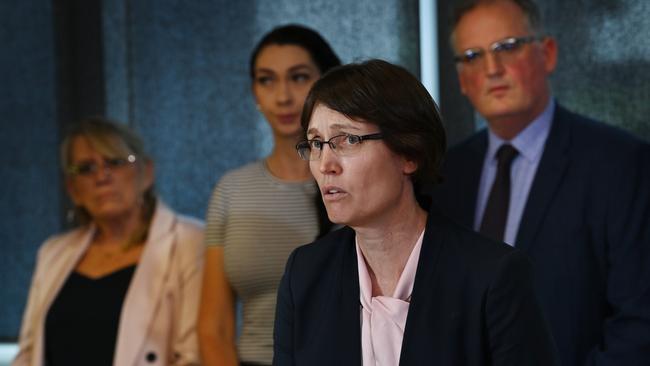
DNA controversy timeline
Late November 2021: The family of murdered Mackay woman Shandee Blackburn call for an independent inquiry into the state-run forensic laboratory. Forensic biologist Dr Kirsty Wright tells the media there were errors throughout the DNA profiling process, and says she believes Shandee’s case “may be the tip of a very large iceberg.”
December 2:Off the back of media reports LNP Attorney-General spokesman Tim Nicholls tells parliament it is “well past time for a full and open investigation into the delivery of forensic services in Queensland”. “An inquiry is necessary because without an effective and up-to-date Forensic and Scientific Services justice is not served,” he says.
March 11, 2022:Dr Wright lodges a complaint with the state’s Crime and Corruption Commission alleging lab experts engaged in “systemic dishonest conduct”, with the lab accused of knowingly using flawed testing processes.
March 29:Health Minister Yvette D’Ath tells parliament there would be a “comprehensive review” of the FSS on the recommendation of her department, which oversees the lab. “”My department has recommended to me, because it has been over 10 years since the system has had a comprehensive review, that we should undertake that and we are in the process of developing terms of reference,” she says.
May 10:The terms of reference for the review are unveiled, more than a month later. The closed-door review is criticised by Dr Wright and the LNP for “falling well short” of being able to investigate the alleged failings.
May 30: The LNP calls for a royal commission-style inquiry in the DNA laboratory. Leader David Crisafulli says “Victims of serious crimes are being denied justice due to these failings.”
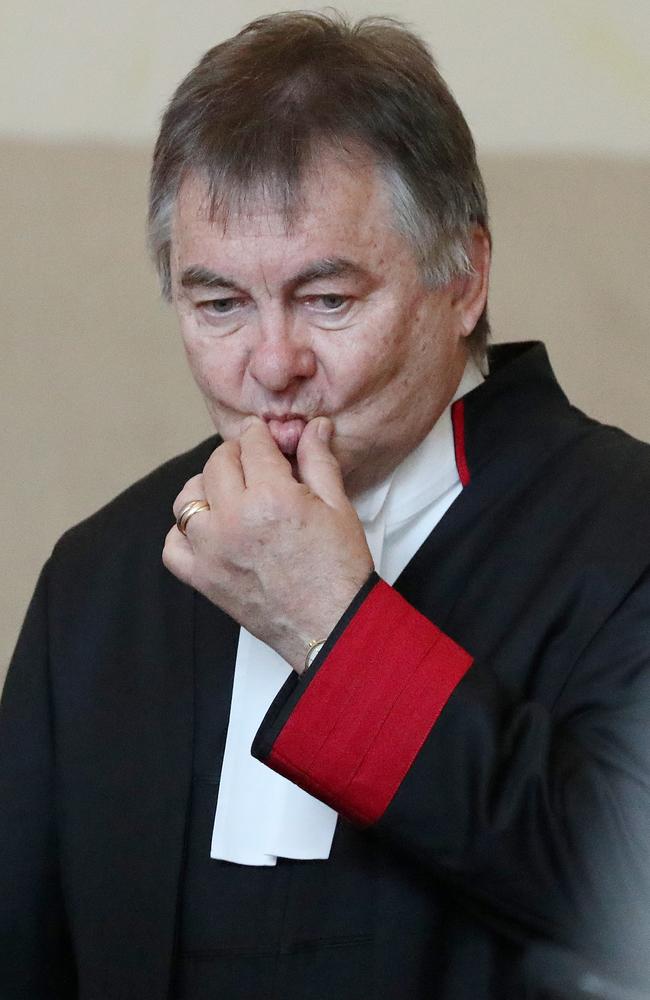
May 31:In response, Ms D’Ath accuses the LNP of “politicising” the issue. “I have no idea why the Opposition would be calling for this other than playing pure politics”,” she says. “It is a duplication, it is completely unnecessary.”
June 2: Queensland police confirm they are reviewing hundreds of rape cases dating back to 2018. It is confirmed the state-run laboratory has been refusing to test crime scene DNA below a certain threshold. The QPS data reveals DNA profiles were found in two-thirds of samples from sex offence investigations that the forensics lab had initially claimed contained “insufficient DNA”.
June 3: Ms Palaszczuk is peppered with questions on the issue during a fiery press conference, and flags a stronger investigation into the lab. Says to expect an announcement on Monday.
June 6:The Premier announces a Commission of Inquiry into the state-run DNA testing. “It is clear to me that nothing short of a full, open and rigorous commission of inquiry can restore confidence in DNA testing in this state,” she says. Ms D’Ath orders the immediate removal of DNA thresholds.
September 20:Walter Sofronoff KC releases the Commission of Inquiry’s interim report, revealing FSS scientists provided misleading or untrue statements regarding the detection of DNA in sworn witness statements. Molecular biologist Professor Frank Gannon is named to oversee the implementation of interim recommendations.




